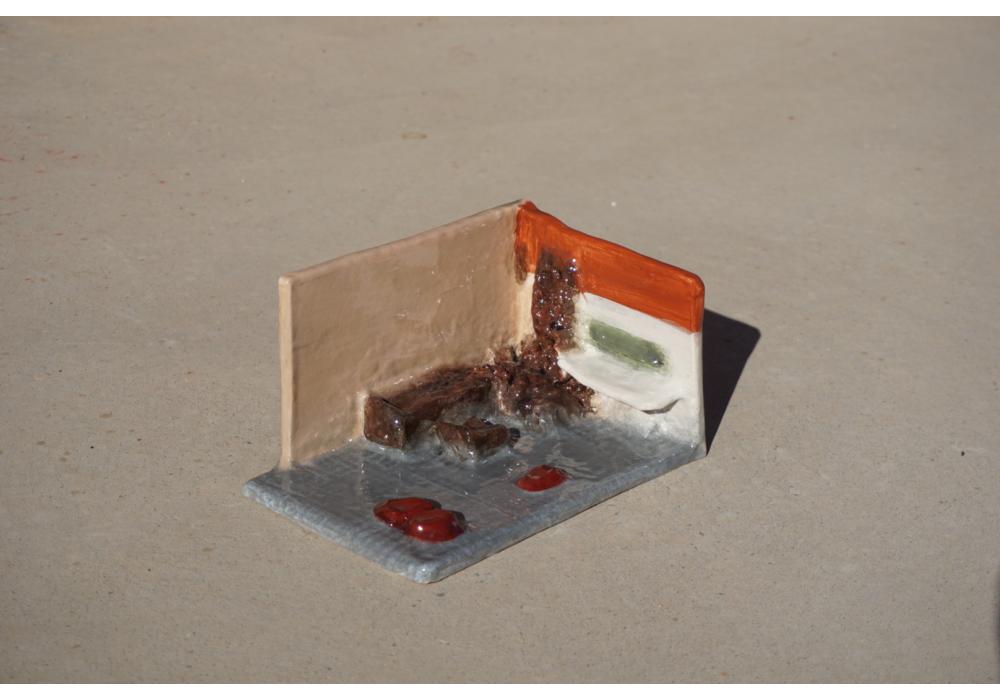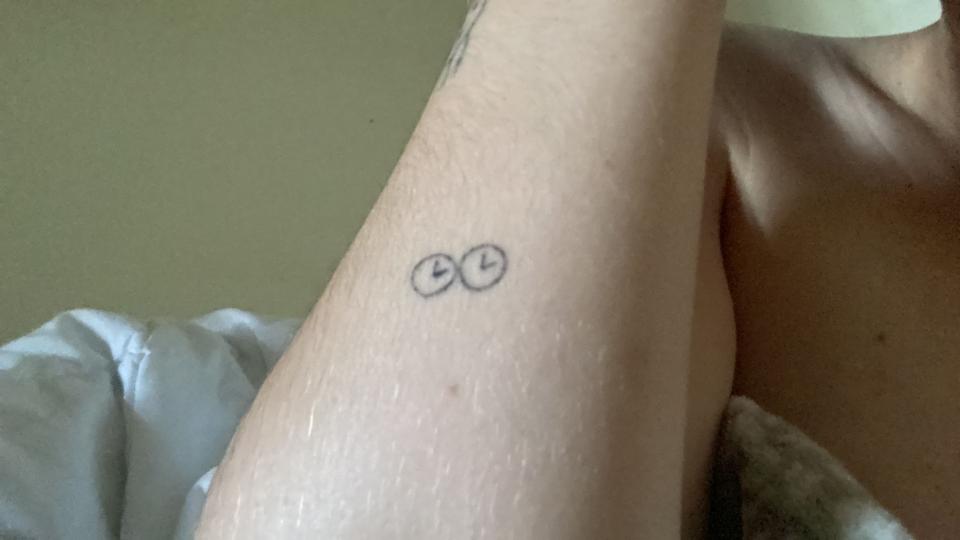Mediation Programme
The Guasch Coranty Grants are awarded annually with the aim of supporting and encouraging creative research projects by students from the Faculty of Fine Arts at the Universitat de Barcelona who have completed a minimum number of undergraduate credits or are enrolled in oficial postgraduate programmes. The three projects selected in the 2024-2025 call for applications by an evaluation committee that comprised Maria Dolors Tapias, Xavier Ristol and Marc Anglès can be seen today in the spaces of La Capella as the culmination of the production process for the projects awarded in this latest edition.
Meritxell Cañas. A Low-Resolution Home
A Low-Resolution Home is a proposal that explores the relationship between the digital and physical worlds through ceramics and artificial intelligence. It establishes a dialogue between the digital and the material, in which ceramic sculptures are formed from AI renderings that attempt to imagine what the notion of home is. Lying between algorithmic randomness and human gesture, the installation questions how the imaginaries of domesticity are constructed and distorted in an age of algorithm- generated images. This is all framed within the context of Barcelona, where the idea of home is a blur between desire and precariousness.
Meritxell Cañas(Barberà del Vallès, 1999) Having graduated in Fine Arts from the Universitat de Barcelona, her artistic practice explores the transfer between the digital and physical worlds, questioning how the virtual can acquire form without losing its essence. Her work involves transferring algorithm-generated images into tangible materials, where code becomes texture and pixels become cracks. She is currently experimenting with ceramics to materialise the trace of the digital in its fragility and permanence.
Natalia Ortega. We Don’t Copy, We Match
We Don’t Copy, We Match takes the idea of the double as a play on affinities: two things that meet, accompany and/or alter each other. The double acts as a point from which to generate associations, a sensitive relationship that crosses what is recognised in the other through latent proximity. Working with materials, images and objects that unfold a universe in which some pieces make others when brought into dialogue with each other. Ortega is interested in borrowing the power of this coincidence or match as a tool: a flexible framework for exploring materiality and creative processes.
Natalia Ortega (Ronda, 2000) Her practice lies between sculpture and imagery, prioritising process and perseverance. After graduating in Fine Arts from the Universidad de Granada and completing an internship at Seventeen Gallery in London, she went on to complete a Master in Artistic Production and Research at the Universitat de Barcelona.
Marc Salas Armengol. Three lemons on the Roughness of a Slab
Three Lemons on the Roughness of a Slab is an investigation into approach and contact, into the interaction between materials in the studio and the painted surface, between gesture and time. It is an exploration of the very ontology of the painting process. The project focuses on the studio process. Armengol is interested in the relationships that arise with/between materials, canvases, surfaces, body and space. He delves into the very essence of painting and its morphology, approaching it from materiality as something that engages in dialogue with space and body. He views the studio as a container that holds gesture and movement, and canvases as structures that retain the process on their surface.
Marc Salas Armengol (Sabadell, 2002) Having graduated from the Universitat de Barcelona, his work examines the processes and actions of painting, with a special interest in the medium’s most fundamental aspect. He works from the relationship with/between things, approaching painting from materiality as a practice that engages in dialogue with space and body.



